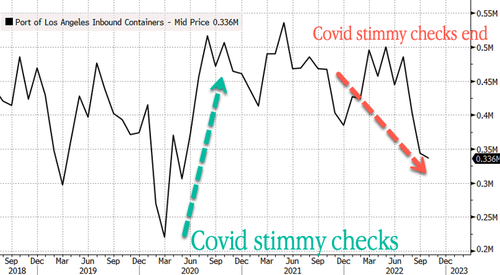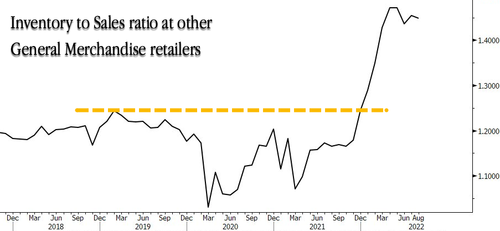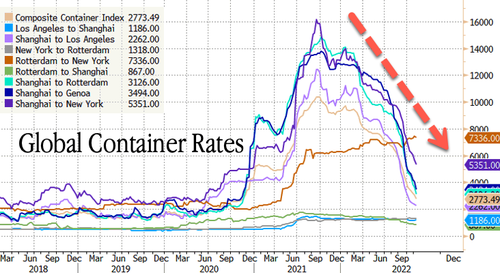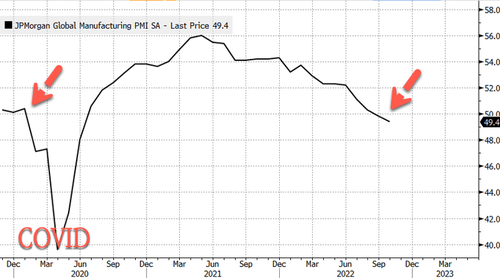Here it is via Zero Hedge.
About a year ago, there was a massive queue outside two of America’s biggest ports, located on the West Coast. Now, the ports are coming to a crawl during the peaking shipping season, ahead of the busiest shopping period of the year.
There’s no longer a massive amount of container ships outside the ports of Los Angeles and Long Beach, California, which handle 40% of all cargo containers entering the country.
According to Gene Seroka, head of the Port of Los Angeles, the backlog has all but dissipated. In an online briefing, he said the Port of LA had the quietest October since 2009.
Together, LA and Long Beach are the main seaport gateway into the US economy from China. The quietest October since the GFC is sign retailers and manufacturers have slowed or stopped ordering from overseas due to either high inventories or collapsing demand.

Seroka’s comment Tuesday is another piece to the puzzle of an emerging global slowdown:
We predict in May that an inventory glut, i.e., the reverse bullwhip effect, would cool the booming freight market. It’s peak shipping season — retailers have already canceled overseas orders as freight companies reduce shipping capacity ahead of Black Friday and Christmas.
Companies across the board are bloated with inventories. This can be shown in the inventory-to-sales ratio, reaching multi-decade highs — forcing importers to reduce shipments from overseas suppliers.

As importers are stuck with inventory, they have reduced orders, which has led to a plunge in container spot rates. Even to the extent that major shipping companies are canceling sails.

Some of the largest shipping companies, such as US shipper FedEx and Danish shipping giant A.P. Moller-Maersk A/S have parked planes and canceled sails as economic storm clouds gather worldwide.


